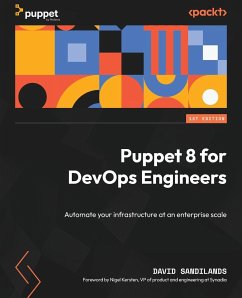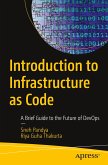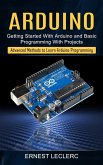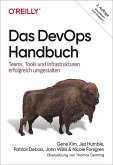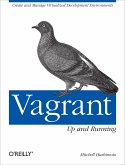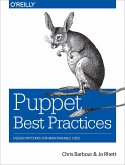Harness the power of this popular declarative configuration management tool to automate your infrastructure configuration Purchase of the print or Kindle book includes a free PDF eBook Key Features:Understand the core concepts and best approaches to the latest version of the Puppet language Learn the key components of the Puppet platform and see how they deploy and apply Puppet code to infrastructure Discover approaches to collaborative working by using the right structure of code and deployment Book Description: As DevOps and platform engineering drive the demand for robust internal development platforms, the need for infrastructure configuration tools has never been greater. Puppet, a powerful configuration management tool, is widely used by leading enterprises and boasts a thriving open source community. This book provides a comprehensive explanation of both the Puppet language and the platform. It begins by helping you grasp the basic concepts and approach of Puppet as a stateful language, and then builds up to explaining how to structure Puppet code to scale and allow flexibility and collaboration among teams. As you advance, you'll find out how the Puppet platform allows the management and reporting of infrastructure configuration. The book also shows you how the platform can be integrated with other tooling, such as ServiceNow and Splunk. The concluding chapters help you implement Puppet to fit in heavily regulated and audited environments as well as modern hybrid cloud environments. By the end of this book, you'll have gained a solid understanding of the capabilities of both the Puppet language and platform, and you will have learned how to structure and scale Puppet to create a platform to provide enterprise-grade infrastructure configuration. What You Will Learn:Find out how to structure Puppet code and data to scale and be secure Discover the core components of the Puppet platform and how to achieve performance Get to grips with classifying infrastructure and deploying code for different environments Understand how Bolt can provide procedural orchestration alongside Puppet code Use Puppet's integrations and Forge modules that allow Puppet to integrate with other systems Adopt approaches to adoption to ensure your Puppet implementation will succeed in regulated environments, the cloud, and with change control Who this book is for: This book is for DevOps engineers looking to automate infrastructure with Puppet as a configuration management tool. It will allow both beginners and current Puppet users to understand the full power of the Puppet language and platform. A basic understanding of Unix system administration and Windows systems and core development concepts such as revision control tools like git, virtualization, testing, and coding tooling like vi or Visual Studio code is a prerequisite.
Hinweis: Dieser Artikel kann nur an eine deutsche Lieferadresse ausgeliefert werden.
Hinweis: Dieser Artikel kann nur an eine deutsche Lieferadresse ausgeliefert werden.

